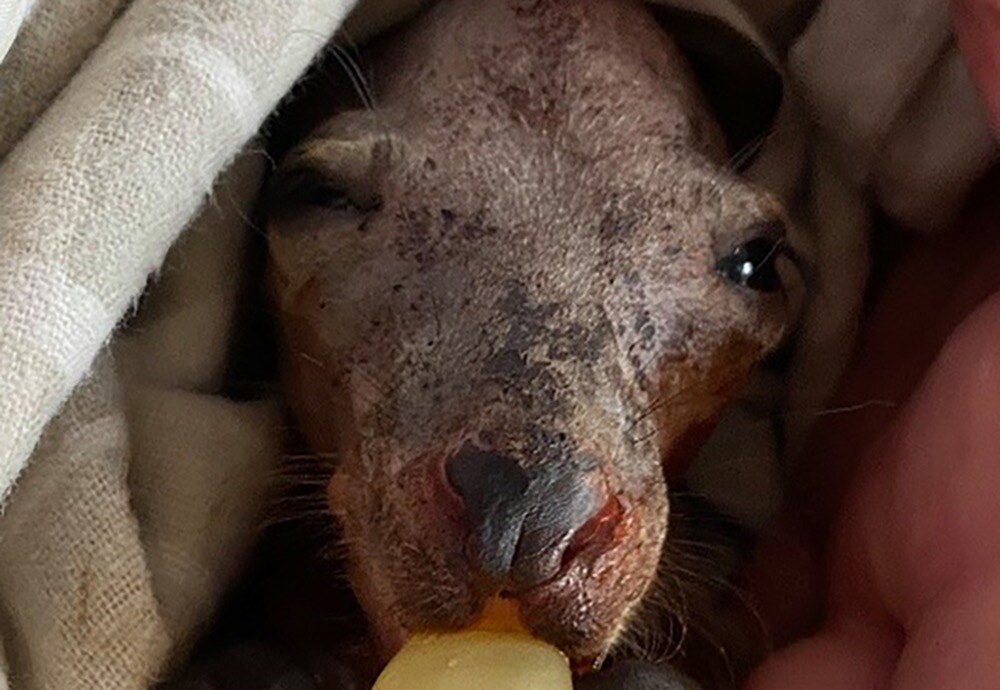Protecting Sydney’s Koalas: Why Corridor Advocacy Is Now Critical
December 2025
For emergency rescue support 24/7 please call 1300 094 737

It was a very cold morning, below zero, when Jacob stopped and checked the pouch of a female wallaroo that had been struck by a car overnight. Inside the pouch he found a very tiny, still hairless wallaroo joey who was clinging to life.
He immediately wrapped her up to keep her warm and contacted WIRES.
When she arrived to WIRES volunteer Linda she was still very cold and barely moving. Thankfully as she warmed up she started to move and was reasonably alert by the time she arrived at the home of our macropod specialist, Sandra.
The first week was touch-and-go but with excellent care from Sandra, Anne and veterinarians, she pulled through.
Min continued to thrive and was moved to begin the journey to ‘slow release’ as it came closer to the time she would be released to live as a wild Wallaroo. Slow release involves being moved from one enclosure to another along with rescued joeys of similar age and become less reliant on their human carers. This is an important step in rehabilitating macropods so that they can be successfully released to live in the wild.
After 14 months in care Min was able to be successfully released.
 |
 |
Stay in touch and get our regular rescue stories, WIRES updates and a free copy of our 15 Ways to Help Wildlife ebook
November 2025
November 2025
September 2025
August 2025
August 2025